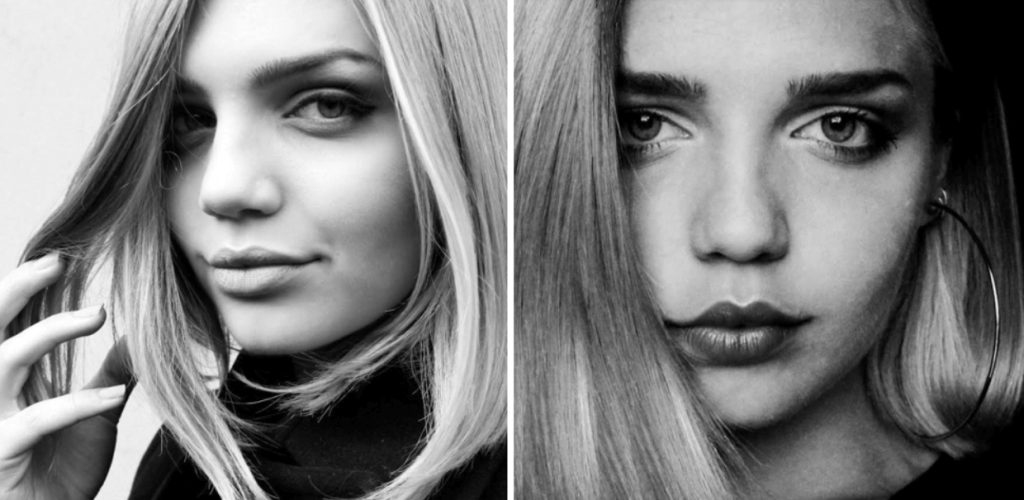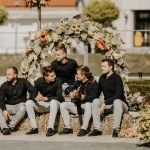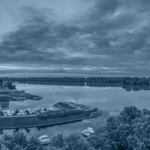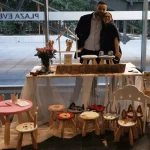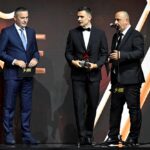The fact that a lot of young people end up leaving Croatia, especially the east of the country, to build a good and steady future is unfortunately well known. And as if the pressures are not enough, they are often met with judgment for not wanting to stay and keep fighting with everyone else. Yes, Croatia is developing and so is the east of the country, but it still is hard. And sometimes the reasons for that are very different as well. We spoke to a young architect from Vukovar, whose move to Denmark was purely a career choice and not survival. It was an attempt to play with the big guys, to learn and to reach heights to match her talent, ambitions, and hard work. And it’s working out wonderfully.
Meet Matea, a multitalented young lady who is known in Vukovar for her skills, dedication to art and friendly smile. She is the girl behind the keyboard making it produce wonderful sounds. It started when during primary school she attended music school and became obsessed with the piano. From a very young age, the only thing that was on her mind as a possible career path was music. She played at festivals, competitions and with choirs, including the church and the city choir in Vukovar. By the end of her primary education, however, she became interested in a different form of art. She then decided to keep music to herself and instead make her contribution to society through architecture and design. She went on to study architecture on the undergraduate level in Split. The focus laid heavily on developing the conceptual thought, and Matea found that very helpful. For her master’s studies she moved to Zagreb. By that time, she had already presented some of her projects and won awards. She stayed the course and currently works with one of the world’s leading architecture firms, the Copenhagen-based Bjarke Ingels Group. We spoke to her to see how she did it, where she is now, and to get her views on Vukovar and Croatia as well.
Tell us about your first projects.
After my undergraduate studies in Split I had the perfect first client. Father Ivica of the Church of St. Philip and James in Vukovar asked me to design the candleholder for the newly renovated areas. I was hesitant about the idea since it had a lot more to do with product design than architecture, but I am so grateful for the opportunity as it really opened my eyes and made me realize that I can do it and that I can expand my skillset and really let creativity flow. I truly appreciate that Father Ivica gave me complete freedom and accepted all my ideas. He saw value in what I created. On my last year, another project followed where I designed the souvenir and ticket shop for the church’s museum. I was inspired by the museum itself so we decided to arrange the shop in a similar way where the souvenirs would be presented as exhibits in a museum, and the actual products for sale would stand in the background. Again, I was met with approval and the project was quickly finished and is now in full operation.
Your graduate thesis was an interesting proposal, can you tell us about that?
I started thinking about Vukovar and I realized that one of the biggest unresolved issues there was situated right in the middle of the most valuable area – the old hotel Dunav, which now stands in ruins without any purpose. I became curious and started exploring the possibilities. I knew that it did not make much sense to just go with a massive hotel and that it needed other facilities, so I decided to make it into a conference centre as well. As for the design itself, I wanted it to be an extension of the architecture of Vukovar so I based it on the famous arcades of the city centre.
After I graduated, I even had an opportunity to present my project to the mayor. Though he did like the idea, the question remains of who the investor would be for such a project. There are a few different sides to the story, and it’s really about politics. It might be very slow, if at all possible, to reach an agreement and get started, but my main goal was to at least get the conversation going. I heard that the discussion is indeed happening and that makes me happy.
Why Denmark, how did that happen?
At the beginning of my studies our professors presented the largest companies in the world, including Bjarke Ingels Group. I started thinking about how great it would be to work for a company like that, where it’s all about creativity and play. So many architectural offices are places where they simply churn out projects. I am more interested in architecture that brings something new to the scene, that changes perceptions. There were two ways of landing a job like that – coming from an Ivy League School or shooting directly for the stars. Obviously, I had to go for the latter. Just before my graduation, I created a portfolio of all my projects and sent it over to all the top companies along with an open application letter. The reply from BIG came in two days later, then an interview, and two weeks later I was already in Copenhagen. I was brought on as a trainee architect, but I was so lucky to have been in excellent teams with some very important people which gave me a chance to work with the very top of the company early on. After a year I was promoted to a junior architect. Ah yes, around that time they also invited me for an interview with Universal Studios, but I had to turn it down since I had already accepted the job with BIG and I was happy with that.
Were your job expectations met?
I love working here, the atmosphere is very friendly, and we have a lot of fun. Most of our days are spent discussing ideas and just talking, and that is exactly what it should be. It is an open space where everyone is truly equal, and everyone can participate in any project. I worked on a couple different projects for opera houses, which is incredibly rare in the world of architecture. One of my projects has already been finished – the city square in Esbjerg in Denmark.
How is life in Denmark?
I know that there are some negative opinions of living abroad, but my situation very different. I left because I knew this was the right place for me to develop my skills. I’m not here with the goal to acquire enough money to buy a fancy car and move back. I am truly growing and learning. I’m open to all cultures and other people. There are 36 different nationalities at my office. I lead the most normal life here – I have a partner and friends, and I have my family and other friends in Croatia. I do miss home, but I don’t have an urge to leave Denmark right now. As for the country itself, I would say that it’s apparent that they are richer than Croatia. What I like the most is the fact that a lot of thought is put into appearances as well as the functioning of their cities.
What are your plans for the future, thoughts on going back to Vukovar?
I am open to anything – this company is my beginning and not my end. I am here to learn and connect with people. I do have ambition to eventually go my own direction and start designing beyond architectural boundaries. I am not bound by location either, and a lot of people misunderstand that as non-patriotic tendencies. I love our country and I love the people there. Vukovar is a place where I will always go back and will always stay in touch with. I follow the developments and I can see some new projects that look exciting. There are many ways to contribute to your home whether you are physically present or not. With that being said, I will say that if the same opportunity presented itself in Vukovar or any other part of the world, I would choose Vukovar and my roots.
What do you think about how Vukovar is developing and the direction it’s going?
This is a bit sensitive. I will say that there is this mental barrier present, you can sense the atmosphere of our past. Building beautiful buildings and large monuments will not solve the problems. We need to work a lot more on the relationships between people, achieving balance and creating a positive atmosphere first. At the same time, with other aspects I feel like the passive period has ended and everything is now starting to bloom. As far as the architecture of the city is concerned, I do see potential in future projects, and I think that everything is going in the right direction.
I will emphasize that great potential lies in Vukovar and its surrounding area. It is certainly the place with the greatest tourist potential in the region. It lies on the largest river in Europe, it’s at a crossroads of countries and regions. It’s steeped in nature, surrounded by nature parks, and national parks are nearby. Vukovar has always been a source of inspiration for me, and I want to give back. I hope that there are other people who feel the same way. As long as we are aware that we need to give back, everything will be okay.
For more, check out our dedicated lifestyle section.

